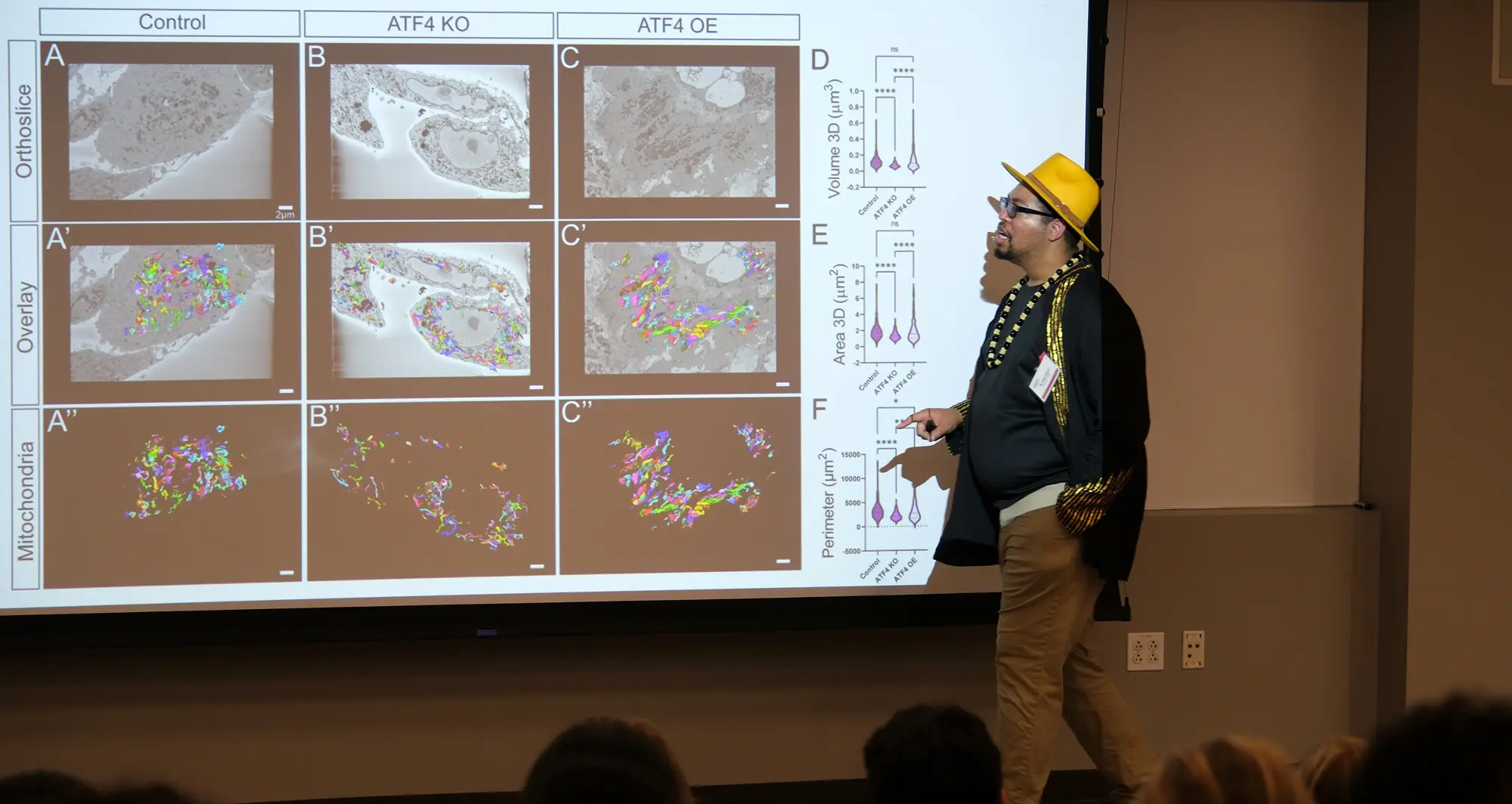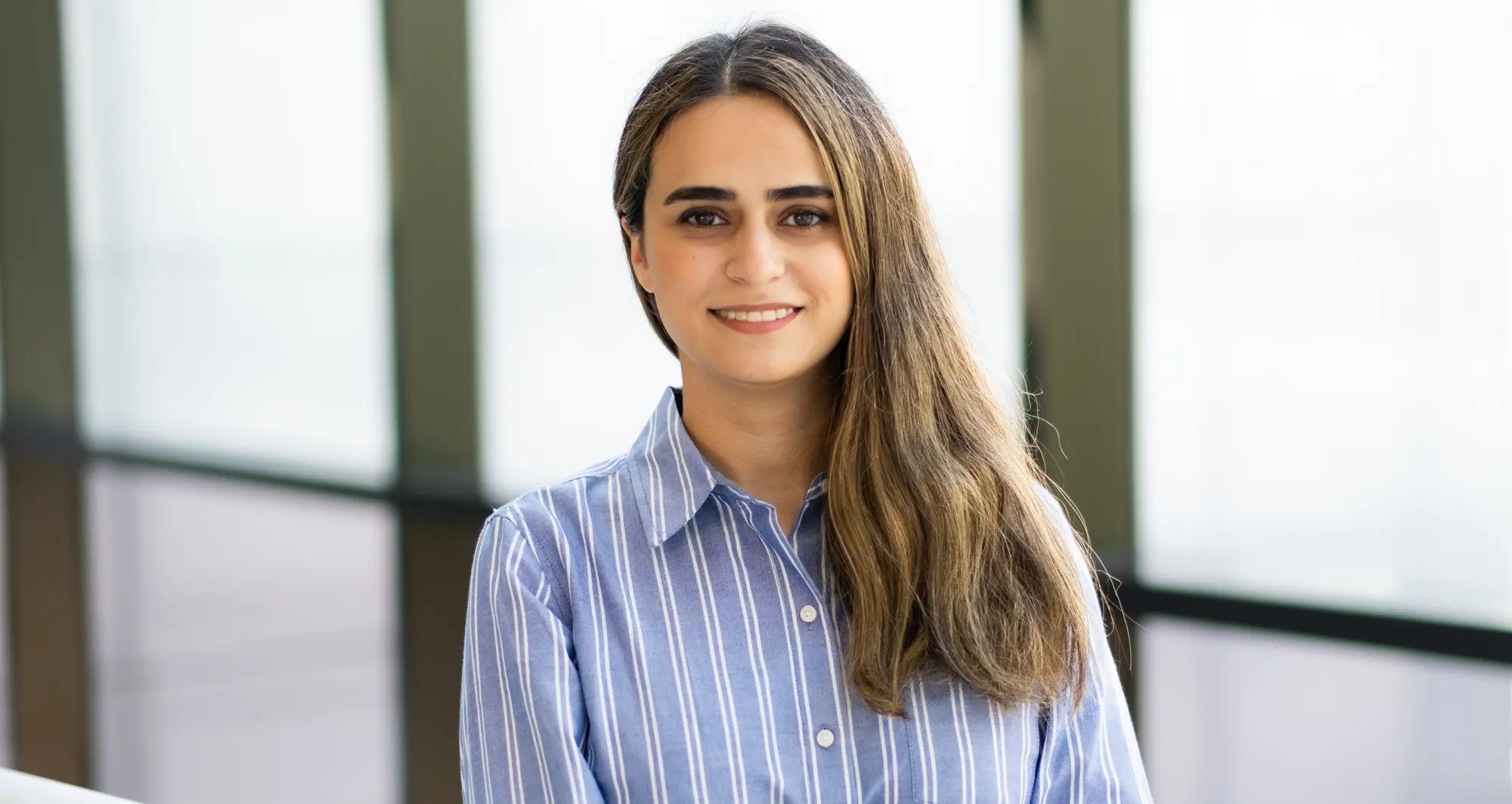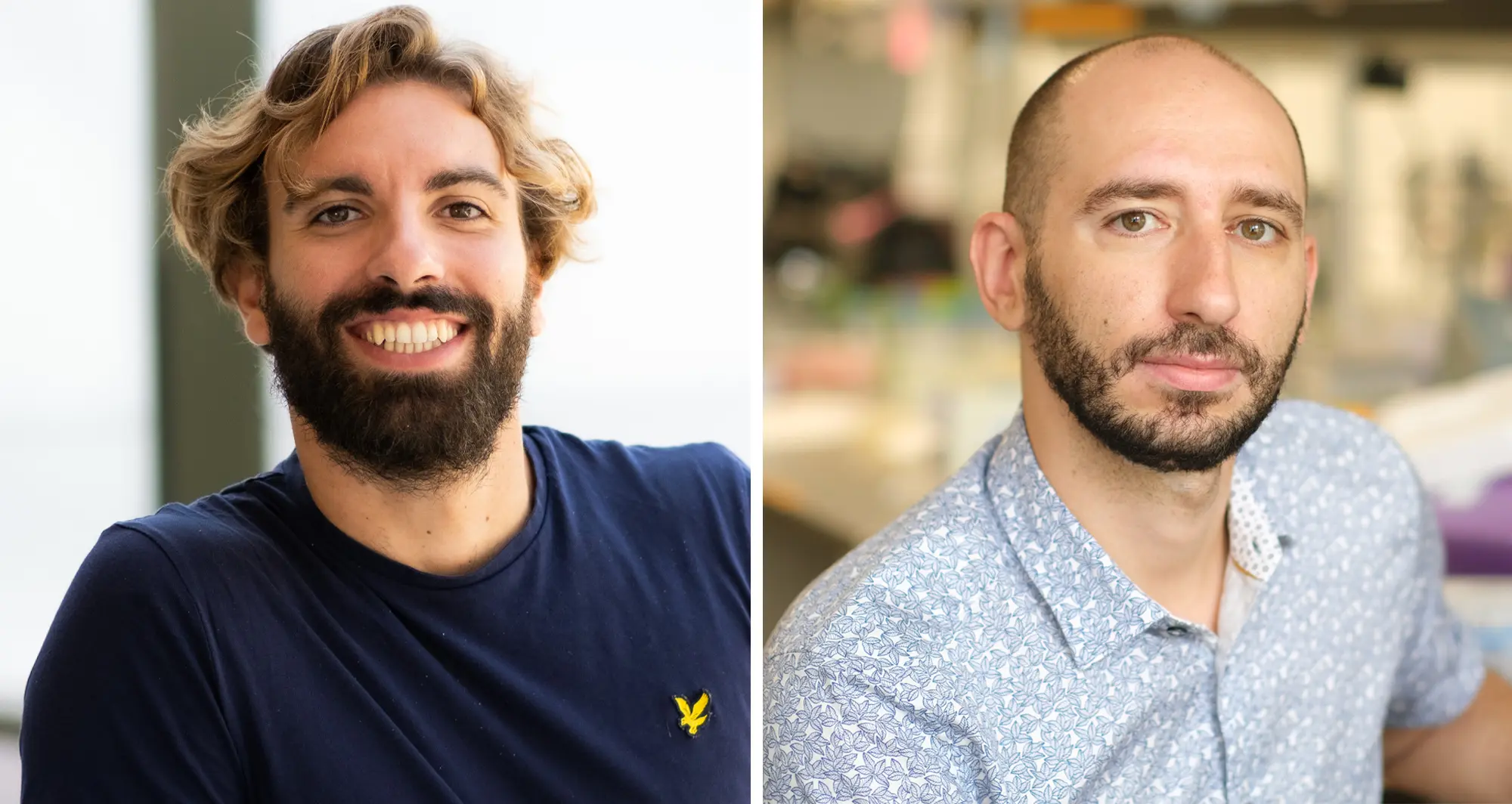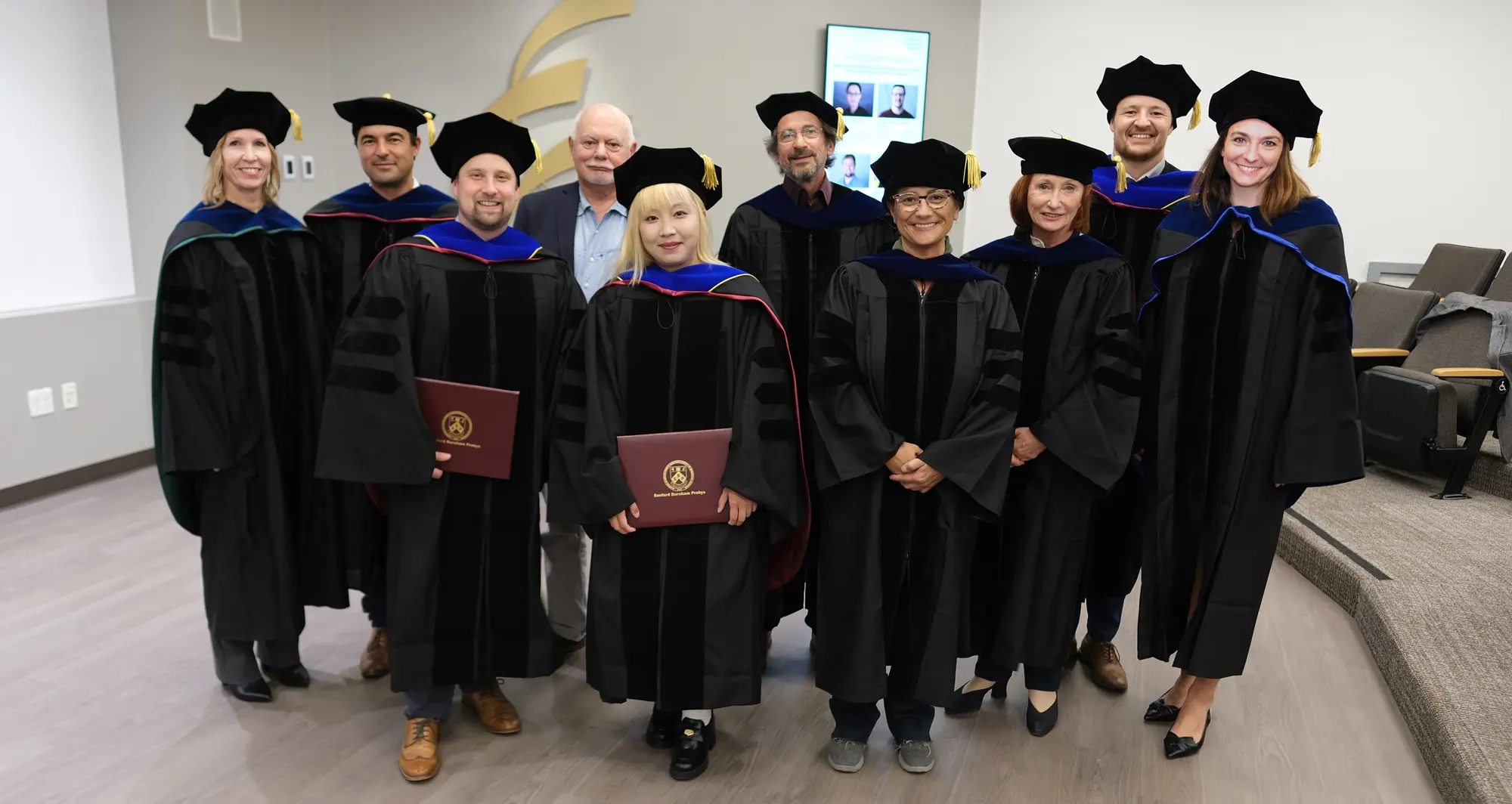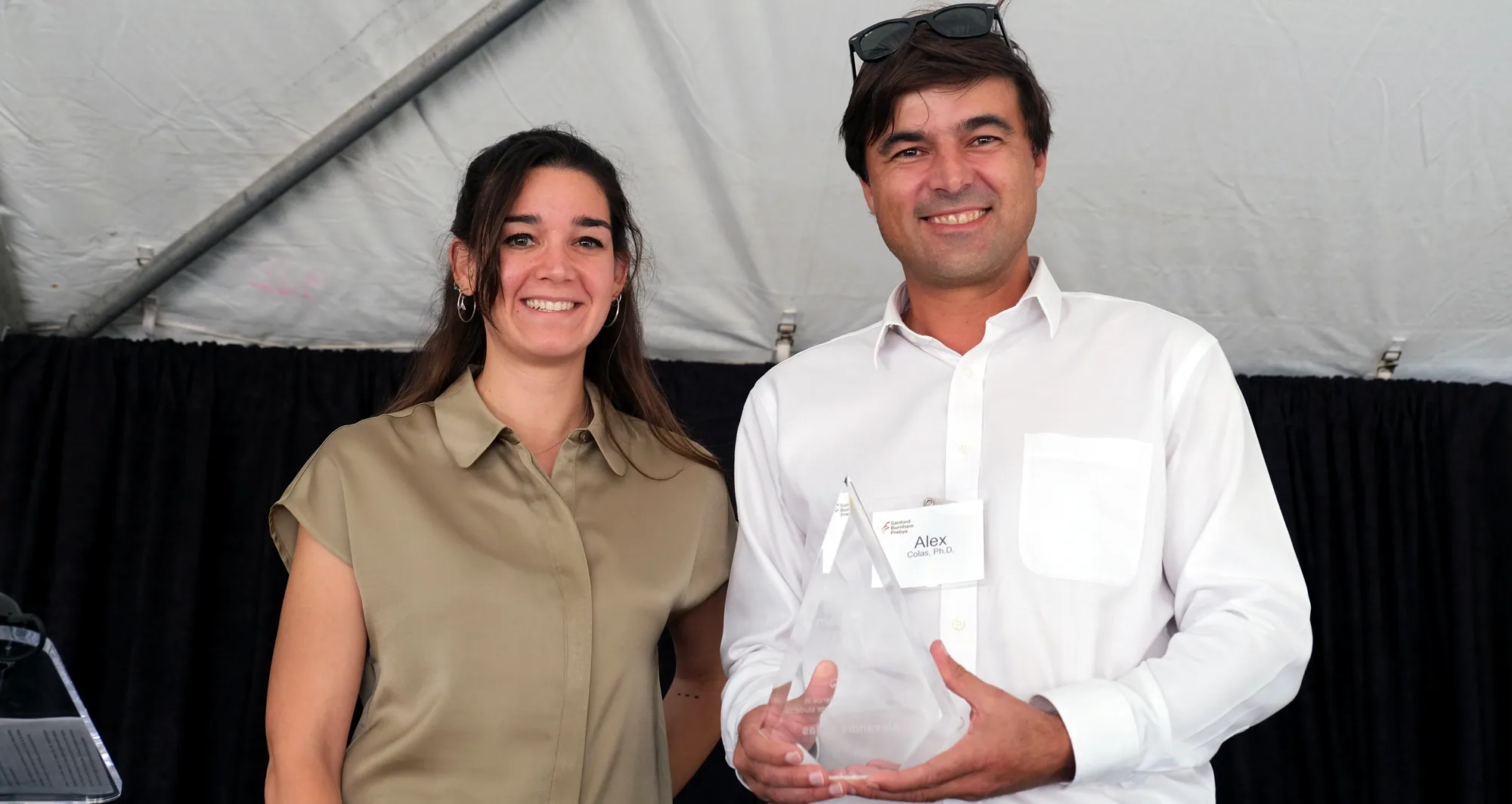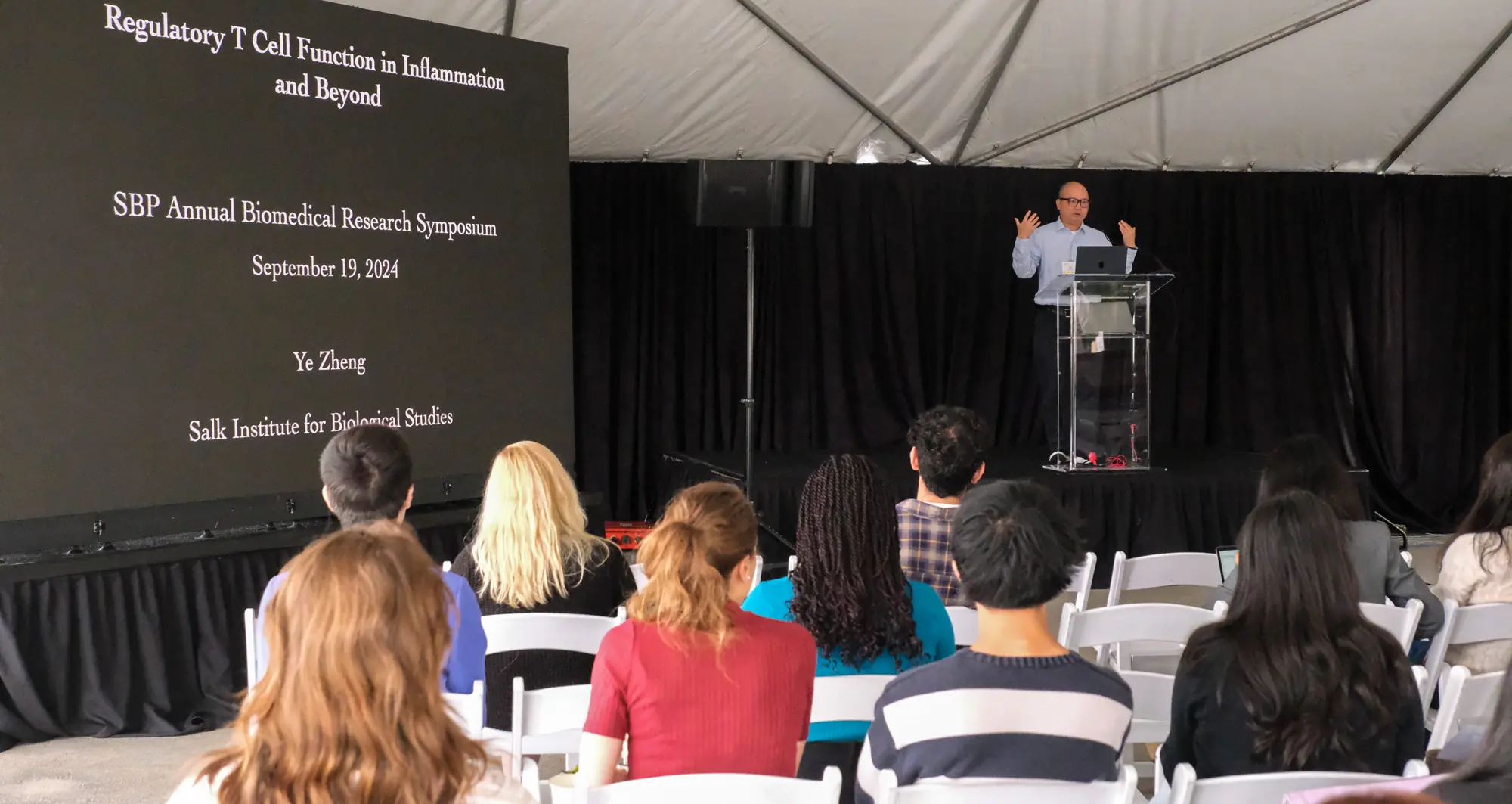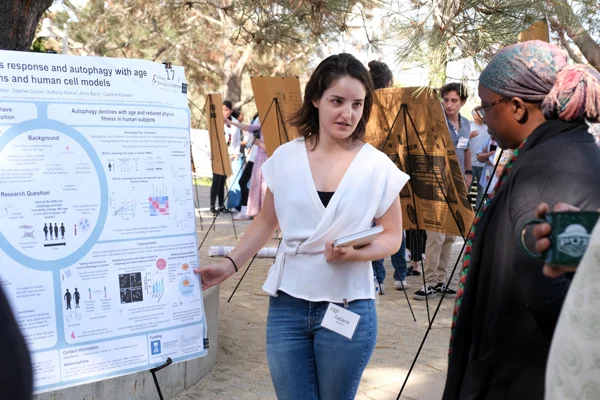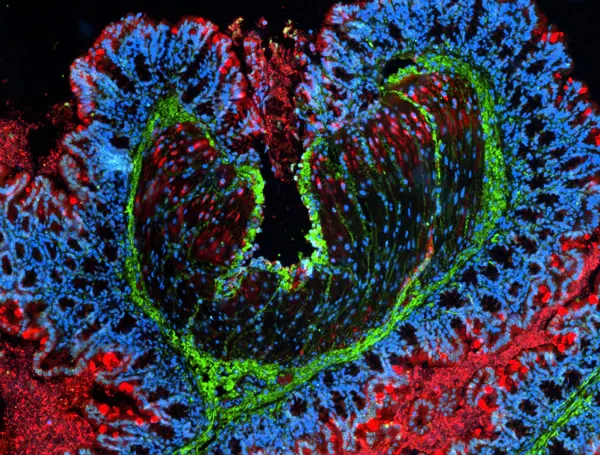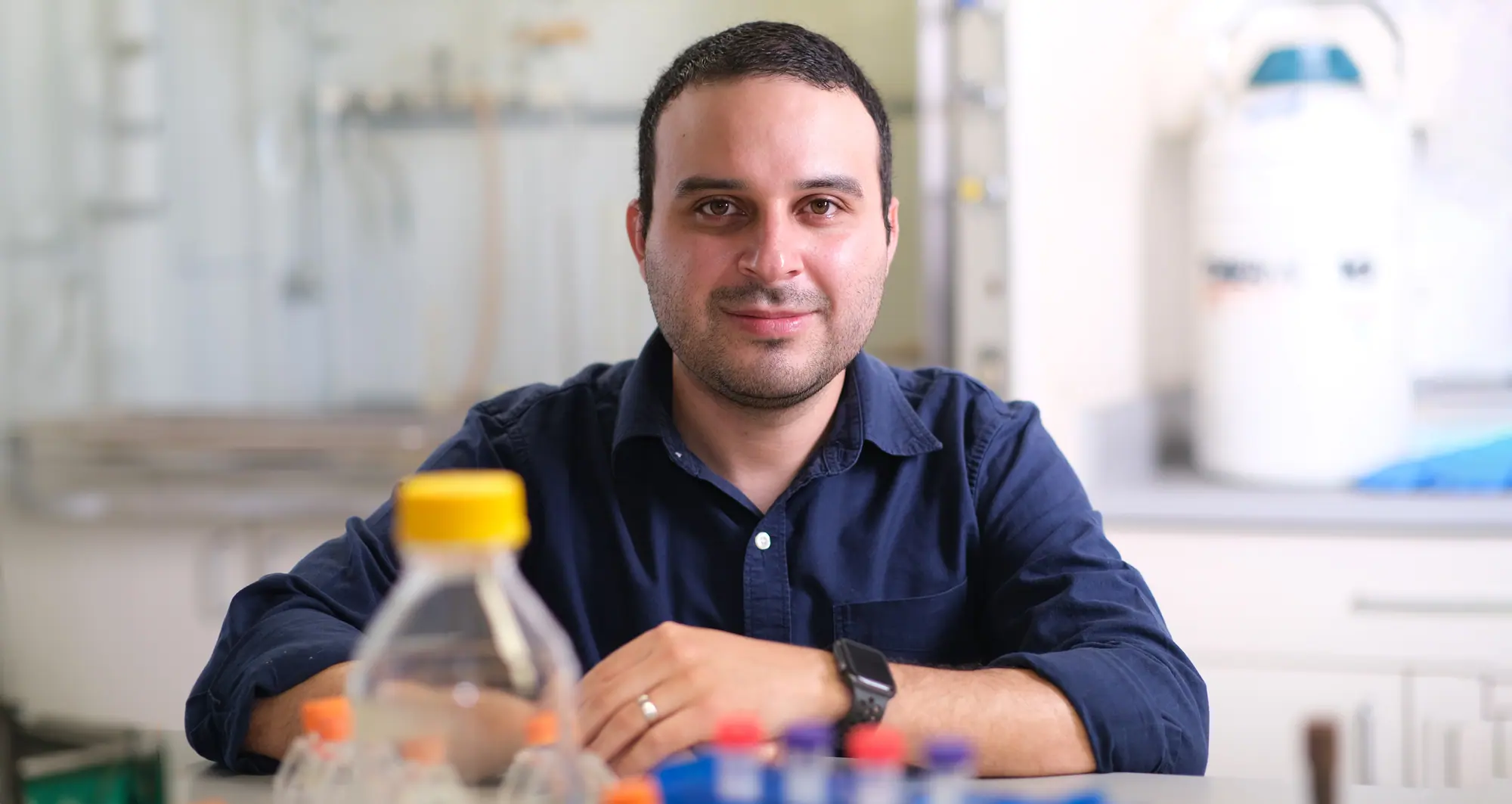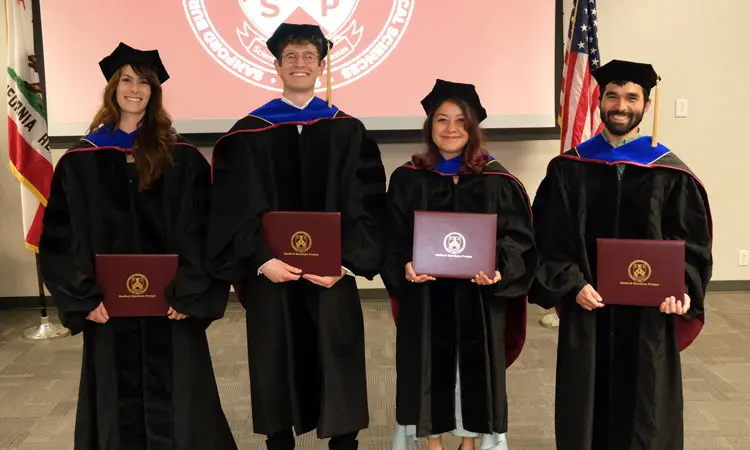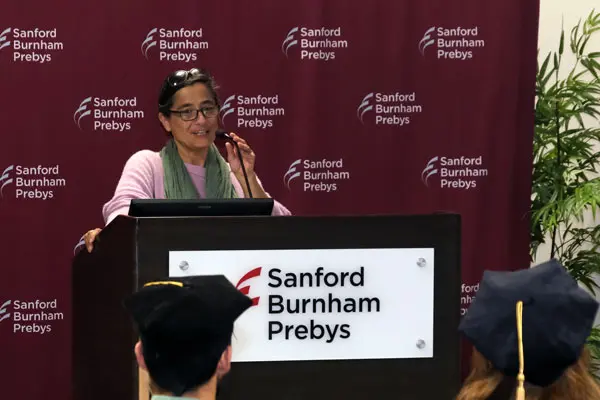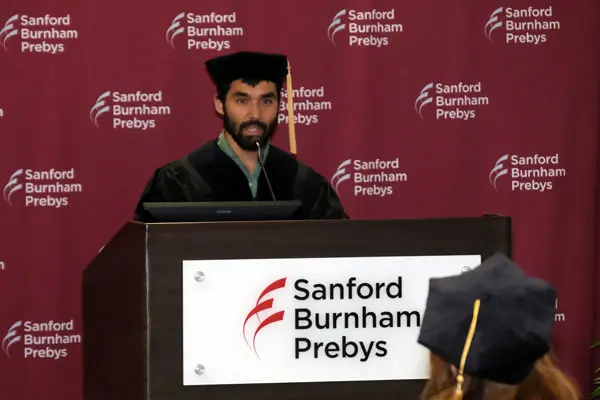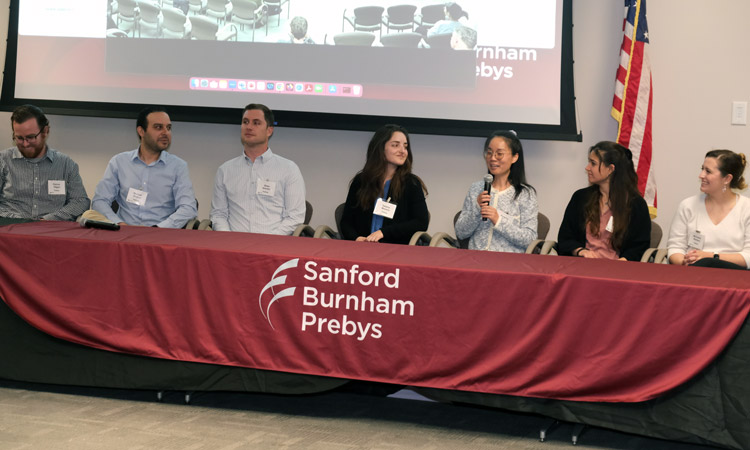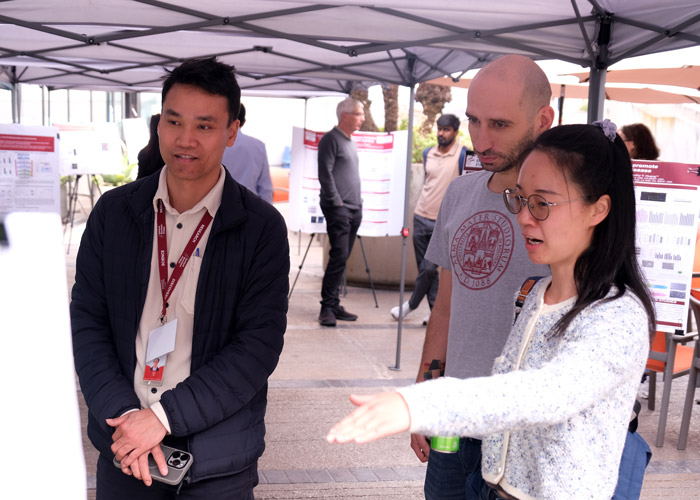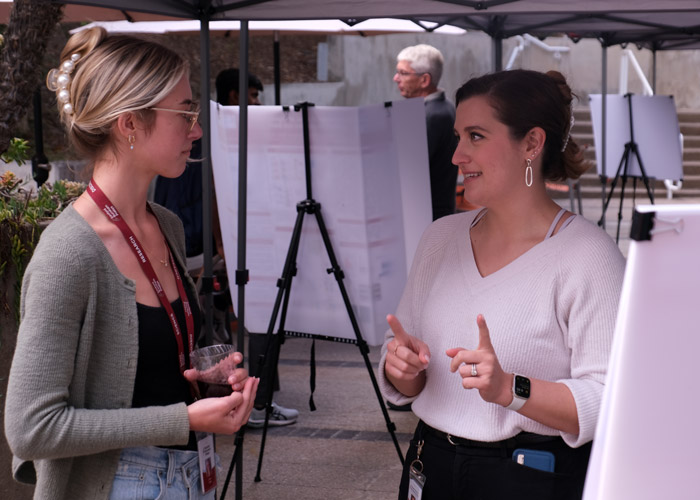The 24th Annual Biomedical Research Symposium brought together postdocs, graduate students, staff scientists, administrators, and faculty for a day that celebrated both discovery and community.
Speakers underscored what makes the gathering special: a rare chance to take in the breadth and depth of research across programs, to connect with colleagues from labs across the Institute throughout the day, including at the poster session, and to spot techniques that might enrich one’s projects. They also emphasized that relationships forged during training often endure for an entire career.
This year’s keynote was delivered by A.J. Hilton, PhD, assistant professor of molecular physiology and biophysics at Vanderbilt University, who discussed how ATF4 coordinates mitochondrial remodeling and functional adaptations across models of aging.
His talk offered a compelling look at how stress response pathways can rewire cellular metabolism and organelle function, with broad implications for understanding age-related decline and resilience.
Attendees praised the clarity of the presentation and its relevance beyond any one discipline, a reminder that the best science often bridges fields.
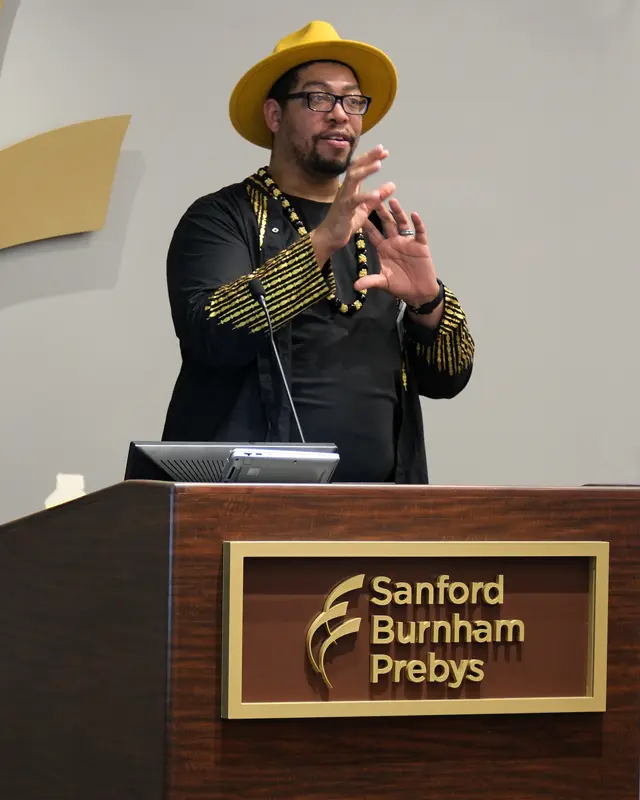
A.J. Hilton, PhD. Image credit: Sanford Burnham Prebys
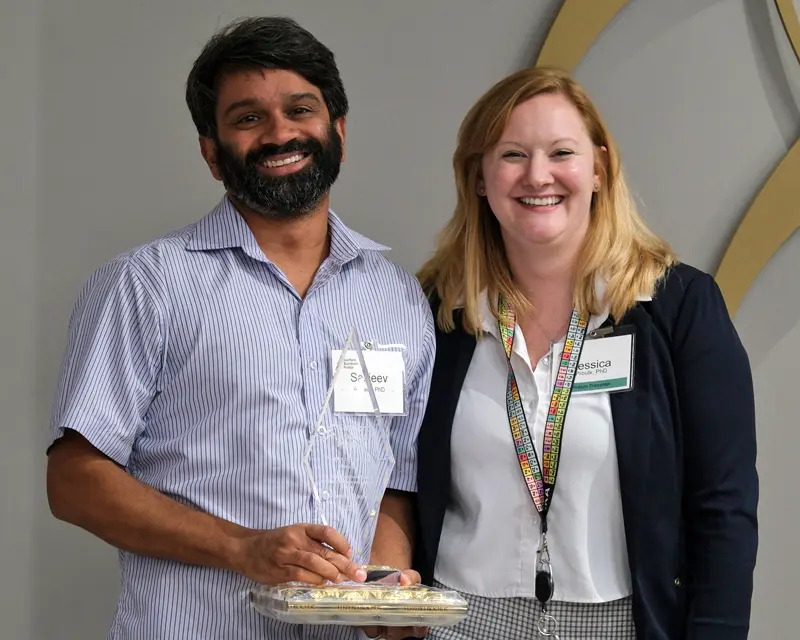
Sanjeev Ranade, PhD, and Jessica Proulx, PhD. Image credit: Sanford Burnham Prebys
A highlight of the day was the announcement of the Mentor of the Year Award for Postdoctoral Training, which recognizes faculty who create welcoming, supportive environments and advocate tirelessly for early-career researchers. Nominees were evaluated on criteria such as clear communication of expectations and goals, active support of career development, and meaningful participation in training initiatives. This year’s recipient, Sanjeev Ranade, PhD, of the Center for Cardiovascular and Muscular Diseases, was celebrated for fostering a collaborative lab culture where achievements of all sizes are recognized and trainees are encouraged to think critically and independently. Mentees credited Ranade with reigniting their passion for science, building confidence, and opening doors to new opportunities—proof that great mentorship can be transformative.
The symposium also acknowledged the vital contributions of the Institute’s training community.
Organizers thanked staff and volunteers who made the event possible and recognized a decade of leadership in career and professional development programs that have helped countless trainees refine transferable skills, land jobs, and navigate diverse paths across the biomedical landscape. Practical touches, including food truck tickets for registrants and clear parking reimbursement instructions, rounded out a day designed to make participation easy and inclusive.
As the Institute observed National Postdoc Appreciation Week, the symposium set an enthusiastic tone for the poster session and the Fishman Awards ceremony. If the energy in the auditorium is any indication, the future of the research enterprise is bright—powered by rigorous science, generous mentorship, and a community committed to helping one another thrive.
BEST PODIUM TALK, Judges’ Selection
- Winner: Luca Caputo, PhD (Puri lab)
- Runner-Up: Sophie Hao (Dong lab)
BEST PODIUM TALK by popular vote
- Winners: Jessica Proulx, PhD (Adams lab) & Katya Marchetti (Ocorr lab)
BEST FLASH TALK by popular vote
- Winner: Michael Alcaraz (Adams lab)
BEST POSTERS, Judges’ Selection
- Winners: Cheng-Ju Kuo, PhD (Kumsta lab) & Caitlin Lange (Kumsta lab)
